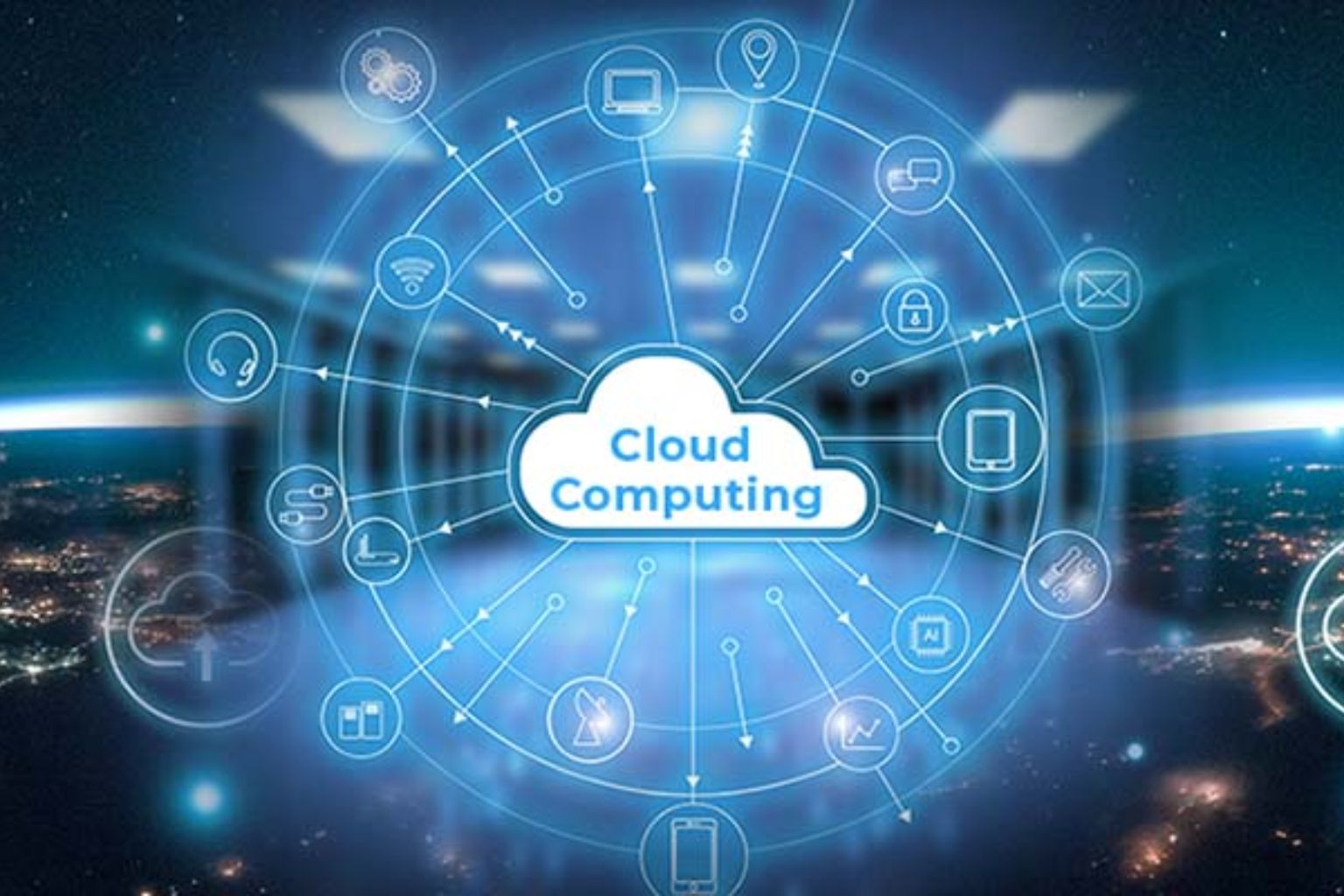Over 90% of today’s startups use some sort of cloud service in their operations. This statistic alone illustrates how quickly Cloud Computing vs Traditional IT has become a fundamental component of modern entrepreneurship. For new enterprises, every business decision matters. Cost management is a necessity, teams need reliable tools to do their jobs, and successful growth hinges on speed to adapt to the market.
Conventionally, Traditional IT infrastructure served as the foundation for companies, but this required a heavy capital commitment in hardware, data center, and ongoing maintenance. Startups are never typically able to commit this form of financial capital in the early days, and, as a result, have a natural inclination towards a leaner model. This is where cloud computing for startups fits in and provides unique value.
The difference between cloud systems and Traditional IT infrastructure is more than technical. It has everything to do with how each method informs the culture of a young business. Startups are based on speed, agility, and the ability to try things without wasting valuable time or dollars. Cloud Computing vs Traditional IT fits nicely with this attitude. Let us take a closer look at the two systems and examine why startups should choose cloud computing.
Traditional IT Infrastructure: What Startups Face
When using traditional IT systems, you are buying servers, network equipment, storage, and software licenses. This seems reasonable if you work for a large company with deep pockets. However, for startups, the cost of building and maintaining Traditional IT infrastructure can be a major hurdle. Consider that a small team, with perhaps ten people, would be expected to spend thousands of dollars at the beginning to build a system to use during the first year…that they may only use during the first year. Plus, your physical hardware is likely aging and will be hard to scale without some additional investment.
When working in traditional IT, the vast majority of your startup will be spent taking care of your systems, and you will not have additional money to put towards product development or marketing. You will also want to hire someone toward IT to monitor the servers since they may be on-premise. When the servers are down or experiencing other failures, startups are likely to fall behind on their growth plans. To put it simply, traditional IT tends to box in startup to a linear process that restricts the process of entrenching itself when the need for flexibility in a process is most crucial.
Cloud Computing for Startups: Cost and Flexibility
Startups typically save money since Cloud Computing vs Traditional IT takes away the initial burden of expensive startup costs that consist of purchasing servers. Instead of requiring payments up front for hardware purchases, startups are allowed to pay only for what they use, in a pay-as-you-go model, freeing up funds for things that are more meaningful to their productivity (e.g., innovation or acquiring customers). Additionally, Cost savings with cloud computing for startups ensures financial efficiency, while Scalability of cloud computing for startups supports rapid growth.
Equally important, there is flexibility. Cloud computing for startups platforms also allow startups to deploy and run applications in hours instead of weeks, as new tools or upgrades can deploy quickly and without the need for hardware provisioning. If a product gets thousands of customers overnight, the cloud scales automatically and magically for all those new users. Responsiveness allows startups to keep up with unpredictable growth patterns.
The financial benefits and operational benefits make cloud computing for startups a compelling alternative to Traditional IT infrastructure. Understanding the Benefits of cloud computing is critical for startups looking to innovate quickly.
Cloud Solutions for Small Business: Scaling Without Stress
Growth is frequently accompanied by growing pains. A small business that relies on Traditional IT infrastructure will likely hit refreshment roadblocks each time it grows. Whether purchasing additional servers, securing more office space, or trying to dodge downtime during a migration, there is always an interruption to the flow of productivity.
Cloud vs traditional IT for business growth shows that cloud computing for startups minimizes these growing pains. Platforms like Amazon Web Services, Microsoft Azure, and Google Cloud offer scalable infrastructure. Small businesses can add computing power, storage, or databases without delay. Relying on physical space or replacing equipment is no longer a problem.
A bakery transitioning to online sales, for example, may require more bandwidth due to increased traffic. Instead of waiting for an IT vendor to respond to the increased demand, Cloud Computing vs Traditional IT solutions allow for real-time scaling to maintain sales and customer experience.
Security and Reliability in Cloud Technology for Entrepreneurs
Data security is a huge concern for startups. With Traditional IT infrastructure, there is an appearance of control, since you have physical servers you can see, but that control comes with limitations. Operating with a small team can be overwhelming when dealing with constant updates, patches, and disaster recovery planning.
Cloud technology for entrepreneurs addresses this gap. Cloud computing for startups teams focus on security, compliance, and data protection. Systems are updated automatically, with fewer vulnerabilities. Backup and recovery reduces downtime and seamless tactics for any unforeseen accidents. For a startup that has sensitive customer information, this reliability establishes trust without the burden of a large IT team.
It is important to recognize that cloud technology for entrepreneurs does not eliminate responsibility. Startups still need to have proper access controls, and trained staff. Yet, moving the heavy lifting of Startup IT solutions to experts offers the freedom for founders to focus more on bottom-line, instead of spending hours maintaining infrastructure.
Cloud Computing Benefits Compared to Traditional IT
Placing these benefits next to each other demonstrates all of the advantages of Cloud Computing vs Traditional IT:
- Cost Efficiency – There are no large capital investments on servers or data centres. Cost savings with cloud computing for startups is substantial.
- Scalability – Resources can be adjusted instantaneously based on demand. Scalability of cloud computing for startups ensures growth readiness.
- Speed – Applications and updates deployed in hours instead of weeks.
- Security – There are constant updates and professional monitoring.
- Collaboration – Teams can work remotely, using shared tools that are hosted in the cloud.
Benefits of cloud computing make it clear that startups thrive with cloud systems. Traditional IT infrastructure does not have this flexibility. For a startup, when every dollar and hour counts, the cloud is just a more reasonable framework to work out of.
Case Studies: How Startups Grow Faster With the Cloud
Take the example of a fintech startup that specializes in mobile payments recently. In a Cloud Computing vs Traditional IT environment, this startup would need to invest in some servers, staffing IT personnel, and prepare for the high volume of traffic ahead of time. With cloud computing for startups, it can pay for only the amount of traffic it receives.
Take the example of an online education company. Using Cloud Computing vs Traditional IT, the company can apply and upload video lectures, monitor student interaction on courses, and manage large quantities of student data instead of building Startup IT solutions on its own. This allows the company to have predictable costs and to shift operations according to student needs for their online education.
Similar stories are told across many industries. Whether it is healthcare, retail, or entertainment, new ventures prioritize Cloud Computing vs Traditional IT, as cloud technology is more suited to the uncertain growth expectancy. Why startups should choose cloud computing becomes clear in every scenario.
Future of Cloud Computing for Startups
Cloud computing for startups is only going to continue to grow. Emerging technologies such as artificial intelligence, machine learning, and blockchain often require Cloud Computing vs Traditional IT for processing. By going into the cloud early, startups will be well positioned to take advantage of these developments.
As regulations develop, cloud providers are also expanding compliance frameworks. Startups working in fields like healthcare or finance may now meet regulatory standards without incurring the costs of building Traditional IT infrastructure. The businesses of the future will be those that can adapt quickly, and Cloud vs traditional IT for business growth shows cloud computing will be the conduit for that adaptation.
Conclusion
Old IT infrastructure used to have a meaning, but it now feels like an anchor to young companies. The primary considerations for the modern or future start-up company are speed, agility, and cost-effectiveness. Cloud computing for startups checks all of these boxes. In addition to removing the burden of upfront investment, which is just part of the value, a Cloud Computing vs Traditional IT environment also provides a more elastic and on-demand platform that will scale to what you need. The cloud environment allows the focus to return back to what is most important – building products, reaching customers, and scaling your business growth with confidence.
The message is simple. While legacy IT will likely still be present in large, established companies, Cloud Computing vs Traditional IT and Startup IT solutions represent the most common sense value option for new start-up companies. Accessing cloud technologies is not a luxury option anymore. Why startups should choose cloud computing and embrace the benefits of cloud computing is a fundamental requirement for sustainability and long-term success.
Read Also: $500 Billion Stargate Expansion: OpenAI, Oracle and SoftBank Power Future of AI Data Centers








